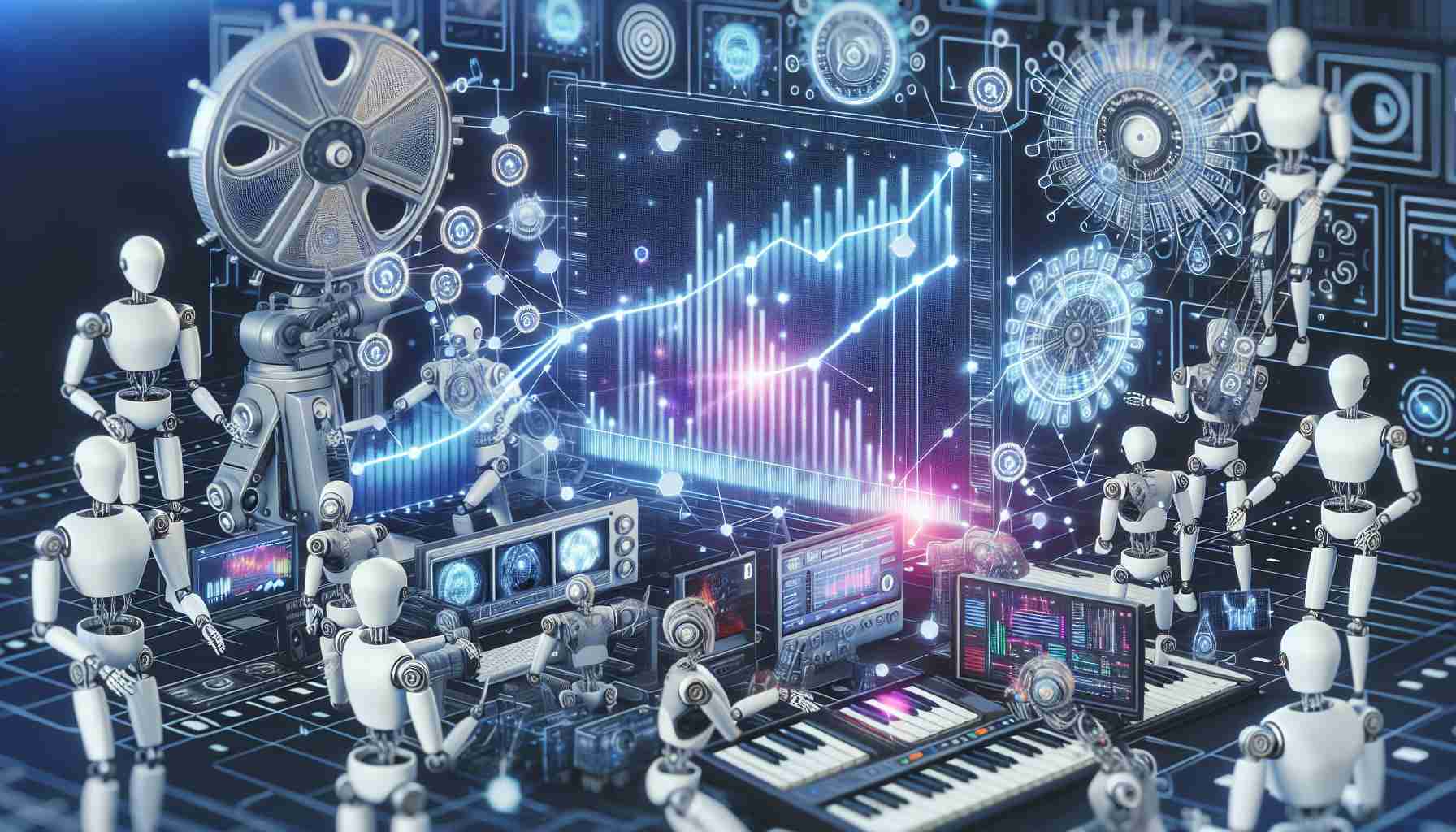The debate surrounding artificial intelligence (AI) has taken center stage in the U.K. recently, sparked by the revelation that actress Sara Poyzer was replaced by AI for a BBC production. Poyzer, famous for her role in the musical Mamma Mia!, shared a screenshot of an email on social media, expressing her disappointment and calling the development “sobering.”
While the details of the production and whether it was for television or audio remain unknown, the use of AI to emulate human voices has raised concerns within the entertainment industry. The email Poyzer shared stated that the BBC had approved the use of an AI-generated voice, rendering her services unnecessary.
Miltos Yerolemou, an actor known for his role in Game of Thrones, joined the conversation, urging British actors and creatives to resist the increasing reliance on AI in the industry. He called for drawing a line in the sand, echoing the sentiments of their American counterparts.
Voice Squad, a voiceover agency that collaborates with Poyzer, expressed their disappointment in the production company’s decision. They highlighted the danger AI poses to the entire industry, as it eliminates opportunities for trained artists who have dedicated years to honing their craft at drama schools.
In response to growing concerns about AI in the entertainment industry, the labor union Equity launched a campaign in 2022 called “Stop AI Stealing the Show.” The BBC has shown its support for the campaign, emphasizing its commitment to maintaining quality in factual and drama broadcasting.
Interestingly, the BBC recently faced viewer complaints regarding the use of AI in promoting the television series Doctor Who. As a result, the public broadcaster announced that it would cease using AI for promotional purposes.
BBC director general Tim Davie addressed the issue, affirming the broadcaster’s commitment to deploying AI on their own terms. He emphasized the importance of preserving human creative control and upholding the BBC’s editorial standards. The BBC is currently collaborating with major tech companies on BBC-specific pilots, with plans to implement the most promising ones in the coming months.
While AI undoubtedly brings advancements and efficiencies to various industries, including entertainment, its increasing role raises questions about the future of human talent and creativity. As the debate continues, it is crucial for the industry and its stakeholders to navigate this new landscape while preserving the value of human contribution.
Frequently Asked Questions (FAQ)
1. What prompted the AI debate in the U.K.?
The debate was triggered by the revelation that actress Sara Poyzer was replaced by artificial intelligence (AI) for a BBC production.
2. What was the response from the entertainment industry?
Actor Miltos Yerolemou and voiceover agency Voice Squad expressed their concerns about the use of AI, highlighting the potential threat it poses to trained artists and the quality of the industry.
3. What campaign did the labor union Equity launch?
Equity launched a campaign called “Stop AI Stealing the Show” in 2022, aimed at addressing the impact of AI on the entertainment industry.
4. How did the BBC respond to viewer complaints about AI?
Following viewer complaints, the BBC announced that it would stop using AI for promotional purposes for the television series Doctor Who.
5. What is the BBC’s approach to AI?
The BBC aims to proactively deploy AI on their terms, supporting rightsholders, while ensuring human creative control and upholding editorial standards. They are collaborating with major tech companies on BBC-specific pilots.
The use of AI in the entertainment industry has sparked a debate in the U.K. While the exact details of the BBC production where actress Sara Poyzer was replaced by AI remain unknown, the incident has raised concerns about the future of human talent in the industry. Poyzer expressed her disappointment and called the development “sobering” on social media.
The concerns voiced by Poyzer were echoed by actor Miltos Yerolemou, known for his role in Game of Thrones. Yerolemou urged British actors and creatives to resist the increasing reliance on AI in the industry, calling for drawing a line in the sand. Voice Squad, a voiceover agency that collaborates with Poyzer, also expressed their disappointment in the production company’s decision. They highlighted the danger AI poses to trained artists who have dedicated years to honing their craft.
In response to the growing concerns, the labor union Equity launched a campaign in 2022 called “Stop AI Stealing the Show.” The campaign aims to address the impact of AI on the entertainment industry and preserve the opportunities for trained artists. The BBC has shown its support for the campaign, emphasizing its commitment to maintaining quality in factual and drama broadcasting.
The BBC itself has faced viewer complaints regarding the use of AI in promoting the television series Doctor Who. As a result, the public broadcaster announced that it would cease using AI for promotional purposes. BBC director general Tim Davie addressed the issue, affirming the broadcaster’s commitment to deploying AI on their own terms. He emphasized the importance of preserving human creative control and upholding the BBC’s editorial standards. The BBC is currently collaborating with major tech companies on BBC-specific pilots with the aim of implementing the most promising ones in the coming months.
As AI continues to play an increasing role in the entertainment industry, questions arise about the future of human talent and creativity. While AI brings advancements and efficiencies, it is crucial for the industry and its stakeholders to navigate this new landscape while preserving the value of human contribution.
For more information about the impact of AI on the entertainment industry, you can visit the labor union Equity’s campaign website here.

